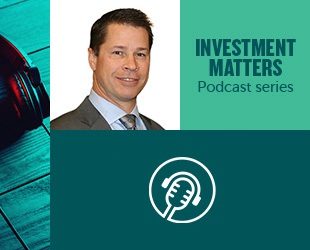What has happened to income, and what are the challenges and opportunities facing charity investors now?
Key points
- With employment strong and inflation consistently higher than expectations, the rate of central-bank tightening is a key concern for investors.
- Higher-yielding equities appear increasingly attractive in an environment of higher inflation and lower growth.
- Security selection remains key, with attractive characteristics including a defensive moat around the business and the ability to pass through energy and other cost increases.
Covid-19 caused sharp falls in equity markets as economies contracted, and governments had to step in to provide exceptional support programmes. Working from home became the norm for many and the digitisation of all aspects of life was accelerated, to the benefit of companies like Microsoft and Amazon. The discovery of effective Covid-19 vaccines was a game-changer, and companies particularly affected by economic closures staged a strong recovery, with more cyclical stocks such as banks taking the lead.
As economies recover, we are facing policy normalisation. Governments are withdrawing fiscal stimulus, and central banks have begun to raise interest rates. With employment strong and inflation consistently higher than expectations, the rate of this tightening is a key concern for investors this year.
What happened to income?
2020 was very hard on income funds. Not only did income stocks fail to be defensive in the market fall, but it was also the worst year for dividends since the global financial crisis. Companies cut dividends to conserve cash, sometimes at the compulsion of regulators, or rebased dividends to more sustainable levels, for example, Shell cut its dividend by two thirds.1
Although global dividends as a whole have now fully recovered from their lows, it will take much longer for the higher-yielding UK market to return to pre-pandemic levels. 2021 saw large special dividends from mining companies plus the return of payments from the banks and insurance companies. Higher oil and commodity prices will boost energy and mining dividends again in 2022, giving a similar total UK dividend income to last year, but this is still 18% lower than in 2019.2 However, we now have a good base from which a more sustainable level of dividends can grow, and higher-yielding equities appear increasingly attractive in an environment of higher inflation and lower growth.
Reducing any unnecessary risks in portfolios
As Lenin said, “There are decades where nothing happens, and there are weeks where decades happen”. The invasion of Ukraine has caused profound changes in geopolitics and policy. In the near term, it has caused higher energy and food prices, creating weaker consumer and business confidence. Over time, it is likely to lead to higher defence spending and prioritising energy security. Risks could remain elevated for a long time.
Against this background it is important to reduce any unnecessary risks in portfolios.
Security selection remains key, with attractive characteristics including a defensive moat around the business (such as patents or innovative products), and the ability to pass through energy and other cost increases. We aim for companies with strong balance sheets, generating cash, which we like on both fundamental and thematic grounds. Businesses with tailwinds from long-term themes, such as the move to the cloud, can continue to grow against a background of slowing growth. Defensive areas such as utilities and health care also look attractive. Businesses helping create the infrastructure of the energy transition are another fertile area: as countries re-evaluate their energy policies following Russia’s invasion, this can only accelerate the move to greener sources of energy.
Sources:
- Bloomberg, 30 May 2022
- LINK Group UK Dividend Monitor, Q1 2022
Your capital may be at risk. The value of investments and the income from them can fall as well as rise and investors may not get back the original amount invested.
This is a financial promotion. These opinions should not be construed as investment or other advice and are subject to change. This material is for information purposes only. This is not investment research or a research recommendation for regulatory purposes. Any reference to a specific security, country or sector should not be construed as a recommendation to buy or sell investments in those securities, countries or sectors.






Comments